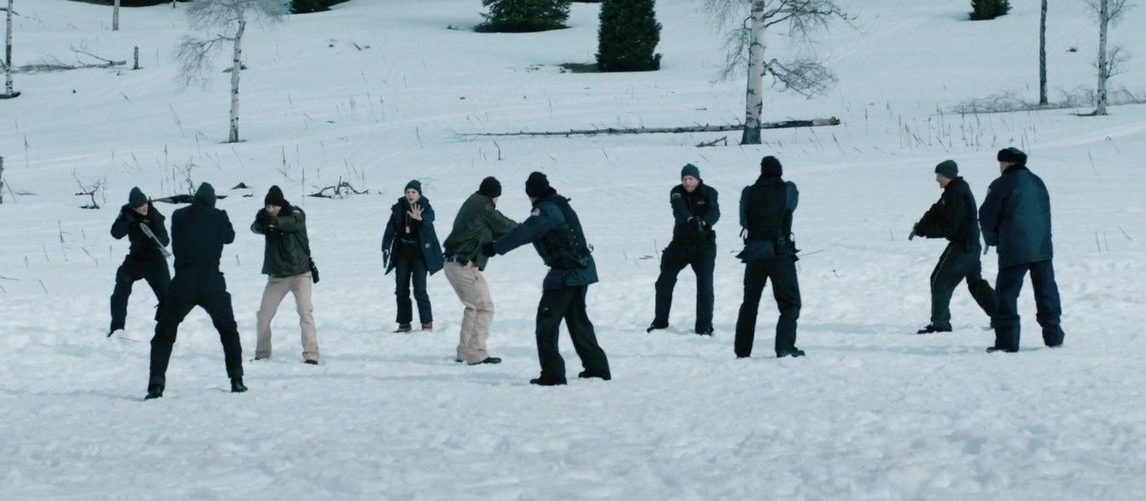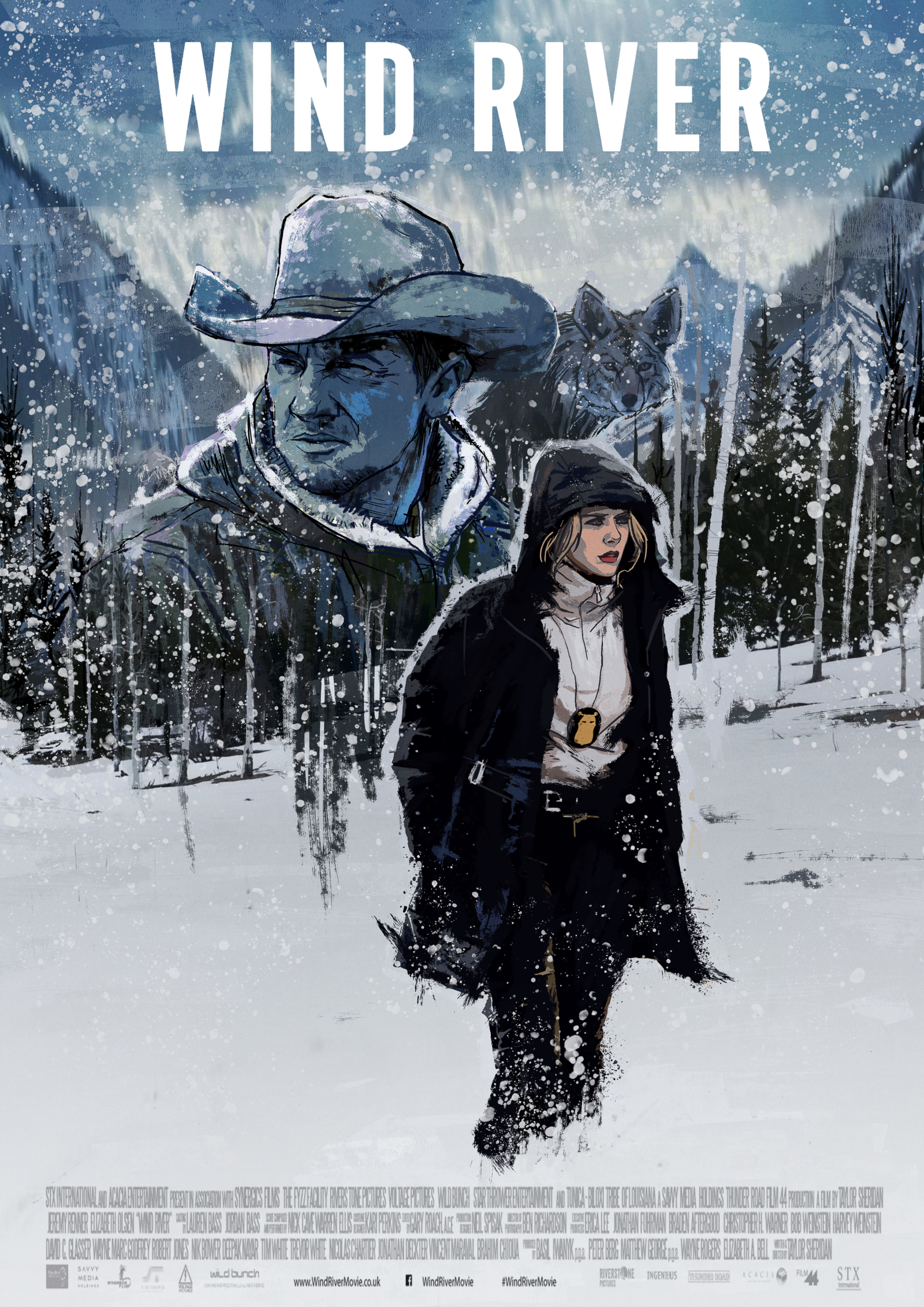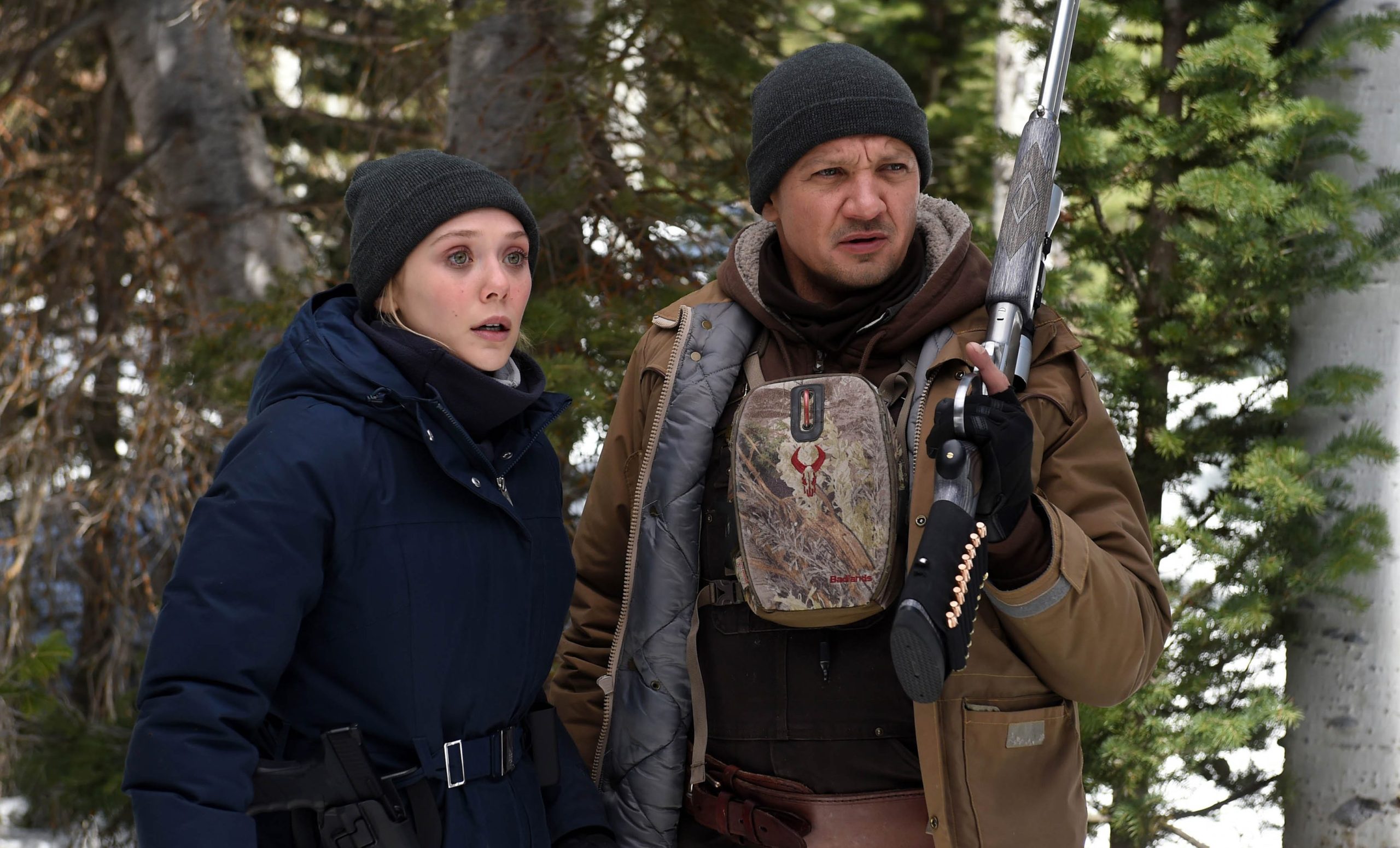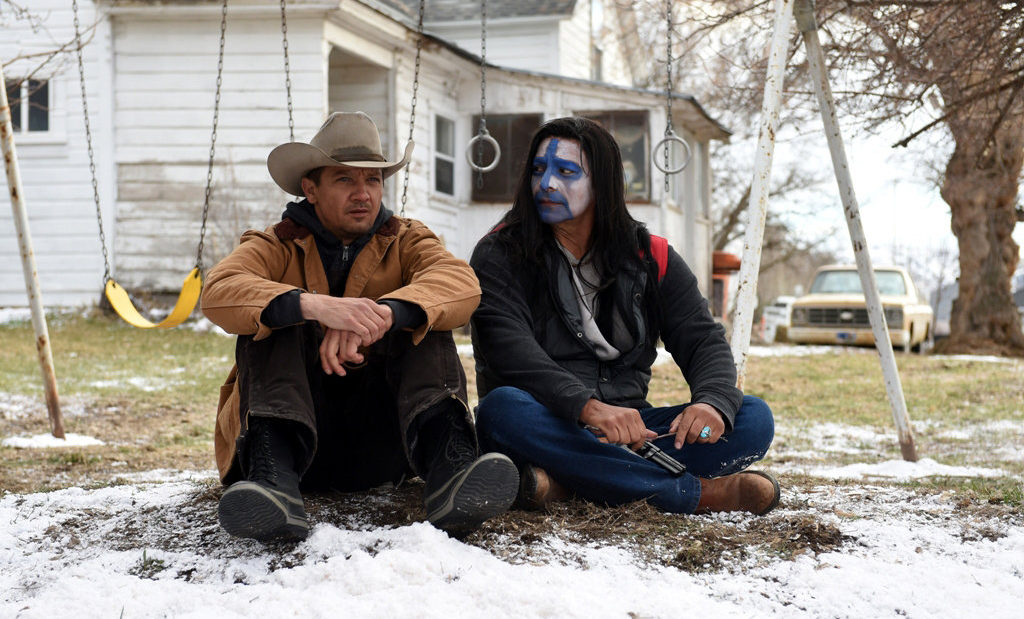

“Luck don’t live out here.”
Taylor Sheridan quickly carved out a niche for himself by penning two brutal screenplays—Sicario and Hell or High Water. The first dealt with the harsh realities of the drug trade on either side of the Southern border while the second concerned a raging crime spree brought about by dire financial straits. He’s quickly cornered the market on the rural backcountry crime drama and has proven deft at spotlighting overlooked social issues and wringing violent drama out of them. Wind River, his directorial debut (discounting the survival horror film Vile in which he stepped into the role to help out an overwhelmed buddy), takes us into the mountains of Wyoming in the dead of winter, where an oil drilling site butts up against a Native American Indian Reservation and snow blankets every inch of the terrain. In the sparsely populated region, physical isolation and necessary self-reliance harden the population in horrific ways. Centered around the mysterious death of a teenage girl, Wind River is another solid entry in Sheridan’s oeuvre, further painting his bleak vision of a fractured nation.
Easy to overlook amidst the shootouts and soliloquies is how well Wind River evokes a sense of place. Trading in the sunny plains of the South for the frozen tundra of Wyoming, Sheridan adroitly calls attention to the unique features of his setting. From tracking foot- and pawprints in the snow, to mountain bypasses, to snowmobiles and snowshoes, the lethal environment has an oppressive presence that will make you shiver in your climate-controlled living room. When U.S. Fish & Wildlife service agent Cory Lambert (Jeremy Renner) is out hunting for a pack of mountain lions that have been pestering the livestock, he stumbles across a frozen, bloodied, barefoot, brutalized corpse about five miles from the nearest shelter. Upon looking closer, he realizes that the body is that of Natalie, a Native American teenager who had been friends with his own daughter, Emily, who had died in similar fashion three years prior.
Already underserved by the government—we are told that Tribal Police Chief Ben Shoyo (Graham Greene) has only six men to cover an area the size of Rhode Island—the locals offer a chilly reception to the rookie FBI agent that is sent to quickly address the possible murder. Agent Jane Banner’s (Elizabeth Olsen) eagerness to see the case closed ASAP only reinforces the notion that the Natives are an afterthought to the federal government. Although she tries to act like a seasoned vet, Banner quickly realizes she’s in over her head, and hits a dead end when the coroner does not rule the death a homicide because Natalie had technically died when her lungs froze from breathing the subzero air too rapidly. Morally upright but inexperienced, Banner enlists the help of Lambert, who is a professional hunter and knows the territory like the back of his hand. He has ulterior motives, hoping to shed some light on his own daughter’s mysterious death, and his understanding of the community’s culture and politics allows him to find avenues where the unfamiliar Banner would be otherwise stymied.

Despite a familiar premise and the stereotypical pairing of the rugged local with the overwhelmed federal officer, and even the generally procedural feel of the investigation, Sheridan’s screenplay manages to remain compelling and intense throughout. It begins with an expositional first act that feels a little bit underwhelming—especially when compared to the intense openings Sicario and Hell or High Water. But that first act satisfactorily establishes an authentic world and nuanced characters such that when the investigation ratchets up we are hooked.
Wind River gets darker and more sinister as each successive layer is peeled back. Natalie’s oil-driller boyfriend (Jon Bernthal) is found dead in the snow. Lambert, Shoyo, and Banner confront a trio of drug-dealing teenagers living in a dilapidated mobile home. A visit to the oil company’s leased drilling site does not go smoothly. There are three brutally violent sequences that are staged, acted, and edited so exceptionally that they churn the stomach and prompt the nails to gouge the palms. One of them breaks the procedural mold of the sequencing and flashes us back to a crucial past event. It’s a neat transitional trick that leaves us guessing at what exactly we’re witnessing for several minutes. I liked this creative twist, but when it comes upon us suddenly and unravels the whodunnit in its entirety, it feels a tad miscalculated. Thankfully, even if Sheridan shows his hand a bit too early, he metes out the punishment in staggering fashion.

Like his other work, Wind River fits broadly within genre confines and has the feel of a pulpy action thriller; but it also attempts to provide more than entertainment. By keeping the murder mystery fairly simple, he leaves himself room to flesh out supporting characters and their circumstances, build up emotional drama, and highlight social issues. He does an excellent job of presenting an isolated world that anyone with ambition has already escaped, while those who are left are gradually worn down by the hardships of life until they snap and lash out. His ulterior aim here, and the reason he was initially inspired to write the screenplay, is the high rate of sexual assault and unreported disappearances among Native American women. In a similar vein, his script calls attention to the generally poor quality of life on reservations and the neglectful treatment those populations receive from the United States government.
Renner is great here because he is playing to his strengths as the stoic type holding in a wellspring of grief. He’s given most of the script’s pontifications and manages to deliver them without coming off as overbearing. Olsen feels slightly out-of-place, though I suppose that’s the point of her character, and she has good chemistry with Renner and Greene. The supporting cast all deliver believable performances, especially the small parts from Gil Birmingham, Martin Sensmeier, and Jon Bernthal. There is one scene in particular that is really solid—when the grieving father (Birmingham) initially puts on a stern visage to ward off Banner, then breaks down crying in the arms of Lambert as the two share a tender moment of sorrow for their daughters.
After three solid neo-Westerns, it’s impossible to peg Sheridan’s success as a fluke. Maybe he’ll prove to be a one trick pony, but that trick is awfully effective and I’ve enjoyed each of his offerings. With Wind River, he’s crafted an undeniable action thriller/murder-mystery hybrid imbued with compassion for the neglected and underseen.